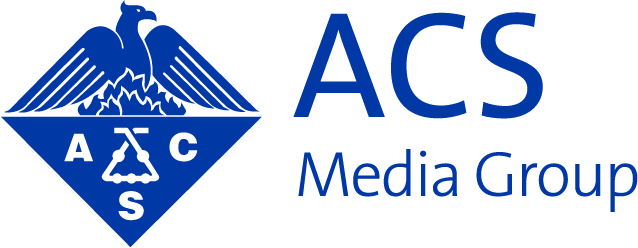Any marketers paying attention to the news might be feeling nauseous. The New York Times, Bloomberg news, and many others warn of a recession. This worry will be particularly intense for some science marketers, given the layoffs in the biotech sector. Clearly, it is time to figure out how to do science marketing in a recession.
Of course, this isn’t the first time the economy has been sluggish. While every recession is unique, there is a lot we can learn about marketing in a recession from the past. Though we are not in a recession at the time of publication, let’s take the opportunity to learn how to weather a tough economy.
So, what’s the move? Is it time to cut advertising budgets?
Should You Cut Spending on Marketing in a Recession? No.
The effects of marketing spending during a recession on business performance is one of the most thoroughly studied subjects in all of marketing. See this 2008 report from the Institute of Practitioners in Advertising (IPA) and Millward Brown, this 2011 peer-reviewed study, or this 2020 article from the Harvard Business Review. These analyses offer one consistent trend:
Companies that maintain or increase marketing spending during a recession generally outperform competitors in the long run, while those that cut marketing spending during a recession tend to fall behind.

Why? There are two dynamics; brand-building and competition. “Brand” is used here to describe the long-term effect of marketing and includes a mix of factors such as awareness, reputation, and mental availability. Brand perception plays a significant role in influencing buyers in the chemical and life sciences according to a study conducted by C&EN BrandLab. As marketing spending is reduced, these brand effects weaken, meaning your potential customers are less likely to buy from you in the short term as well as when the recession is over.
Reducing marketing spending also gives an opportunity for competitors to gain an edge. The impact of advertising is related to your “share of voice,” meaning how much you spend compared to other companies in your category. You will likely lose market share if you pull your ads while your competitor maintains (or increases) their budget.
Of course, some businesses have no choice but to cut expenses. While unfortunate, it’s understandable – do what you have to do. But remember, cutting marketing spending means it will take longer for demand to return to pre-recession levels.
Pricing and Promotions
Before shaving money off the marketing budget, companies should first take a hard look at pricing. The economy has been wild in recent years due to supply chain issues, rapidly shifting demand, and inflation. Production costs have been changing constantly. If your price is wrong, you can get the rest of your marketing right, and your company will still fall behind.
In theory, “pricing” is one of the “4 Ps” of marketing, but in practice, the marketing team doesn’t always set prices. Sales, finance, and product teams often control this function. This is particularly common in B2B science companies that offer complex or custom products and services with multi-year service agreements.
If your marketing team doesn’t control pricing, you should ask whoever is in charge when prices were last updated. This conversation may feel strange now, but we need to become comfortable adjusting our pricing in a period of high inflation.
People within your company may have conflicting motives when it comes to setting prices. Some may want to drop prices to pump-up short-term sales, while others will want to increase profit margins on the few purchases being made. It’s a tough call.
While marketing may not control pricing, you might have more influence over promotional sales. Discounting during a recession makes intuitive sense – buyers have less money and are looking for bargains! This could be a trap. Customers who buy when a product is discounted often would have bought from you anyway; they are just moving their purchase a couple of months early or switching from one product in your portfolio to another. You are also teaching your audience to expect discounts, which could harm your business in the long run.
Adjusting Your Marketing Mix

While you should avoid reducing your overall marketing spending, that doesn’t mean you shouldn’t adjust where the money goes. Take a hard look at which products you promote, your messaging, and your mix of promotional channels. Does this make sense in a recession?
How do you develop a recession-friendly marketing strategy? Listen to your customers. That might sound cliché, but remember that economic dips don’t hit all industries equally. Your customers may be humming along uninterrupted, or they could be slamming on the brakes. Their experience is more important than what is happening in the economy at large. You may consider conducting market research or customer surveys to learn about your customer needs and pain points.
Here are two generic strategies to consider for marketing in a recession:
Brand-building
Instead of looking for sales that aren’t going to happen, position yourself as the market leader after the recession. Create educational content, sponsor events, publish original research, and develop a reputation as supporting the scientific community. This is particularly relevant for businesses that only sell high-cost products and services – few companies are likely to make expensive investments right now no matter what you do, so put effort into brand-building to ensure future sales.
Budget-friendly
Many companies offer products at a range of price points. Higher-end items get the most attention during booms, but now is the time to focus on lower-priced offerings. This will hopefully ensure a stream of revenue, though you should avoid becoming obsessed with short-term sales – you don’t want to chase after customers who don’t have the money to buy.
In either scenario, take the time to review where you are spending your advertising budget. Other companies could be cutting their marketing spending, so there may be less competition for media buys. Talk with publishers and see if you could get a deal on ad packages. This could be a chance to out-market your competitors, allowing you to turn the recession into an opportunity.
Recessions are an Opportunity to Revisit Your Marketing Technology Stack
If your budget is being cut, one place to save money is your MarTech stack. Those SaaS products are neat, but are they necessary? Costs have a way of piling up – you could save thousands of dollars by canceling or downgrading software tools without significantly impacting performance.
Overbuying technology during the pandemic was common. Trade shows and academic conferences – major expenses for science marketers – were scaled back dramatically. Many marketers used this spare budget to buy digital marketing tools from their wish lists. After all, won’t we have time to master these new widgets and plug-ins?
Fast forward a couple of years, and some of these fancy tools are barely being used. John or Jane, who learned the software when you first purchased it, left the company seven months ago. It’s time to decide: will your team invest the effort into getting the most out of this technology, or will you drop it?
If you are unsure, it is probably best to err on the side of canceling – if you change your mind in a couple of months, you can always rebuy. Plenty of companies are willing to offer a discount for reactivation.
Doubling-Down on Science Content Marketing Best Practices
Even if your budget hasn’t been cut, it is time to get serious about execution. Buyers have limited budgets, so you must demonstrate your company’s expertise. Outstanding content marketing is the best way to accomplish this.
Webinars are a prime example. In the early days of the pandemic, companies could sign up hundreds or thousands of people for a webinar regardless of content or production quality. Audiences were looking for something to do and were forgiving of technical issues. But standards have risen over time, and people want engaging presentations from subject matter experts with solid technical production. Now is the time to brush up on webinar best practices.
Repurposing, refreshing, and redistributing content are other tactics marketers can take advantage of without extra expense.
Redistributing is using channels such as email and social media to promote existing content. Example: sending out emails promoting a blog.
Repurposing is taking current content and using it to create new forms of content. Example: using a blog as the foundation for a podcast episode.
Refreshing is updating existing content, often paired with redistribution. Example: adding details about new research to an old blog.
While every content marketer should be familiar with these techniques, we don’t always follow them. These “re”-tactics are an absolute must for any team with a reduced headcount since you can maintain your impact with fewer people.
Finally, review your email marketing. Email marketing has a lot of potential for nurturing leads and distributing content, but many teams only use a small portion of what their email software offers. Are your automated email campaigns up to date with compelling subject lines? Are you segmenting your audience? This may sound tedious, but your future self will be thankful for building high-quality email lists.
No “Hacks” for Science Marketing in a Recession
Some people may have gotten to this point in the article and feel disappointed. You came here looking for a “hack” for marketing in a recession, but most of the advice is generally known best practices. You’re right, but that is because there are no “hacks” for quality marketing. A lot of this is about building habits. Eat your veggies! Brush your teeth! Edit that webinar into social media clips! The fundamentals of marketing don’t change just because the economy shifts. Don’t panic. Focus on getting the most out of the resources available. Execute effectively. These simple steps should be enough to get most companies through the recession.


















